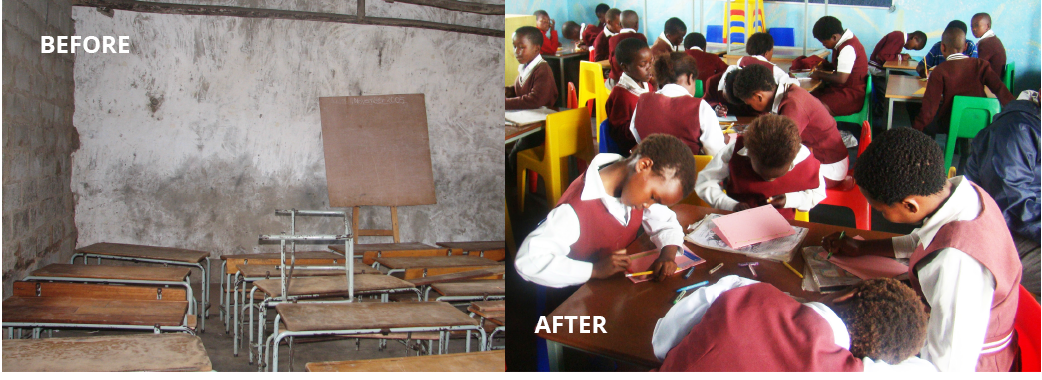The system of public education in the post-apartheid period remains deeply unequal. The inequality starts in the earliest parts of the system. Research suggests that a child’s relationship to reading and writing with meaning in the early years of schooling largely frames her future educational experience.
While approximately 20% of schools located in urban and middle class areas provide young children with a good chance to read with meaning by Grade 3, up to 70% of the system, serving African language speaking children and their communities do not support children to read and write by the end of primary schooling.
While there is a lot of research and development work in English dominant school settings, there is much less detailed research and development to build instructional materials and strategies to teach successfully in African language dominant classrooms.
The flagship work of the Nelson Mandela Institute across the past 10 years is known as the Magic Classroom Collective (MCC). The goal of the collective is to build effective tools and materials to transform the system at greater scale. The Magic Classroom Collective (MCC) brings together rural foundation phase teachers, teacher educators and researchers into a long-term working partnership. Placing the rural child at the centre, the goal of the MCC is to design and develop tools, materials, strategies and systems accountable to the teaching and learning context of the majority of South African poor schools. Currently the Magic Classroom Collective includes over 70 teachers serving over 2,100 children from Grade R to Grade 3 within 15 schools in the most rural areas of the Eastern Cape.
The work of the Magic Classroom Collective is intensive. For each school term, a complete set of teaching and learning material is produced for each classroom. Working with classroom based instructional coaches, teachers field test the materials and systems, and reflect on how they work in their classrooms.
Before, there was no reading in classrooms, now children read on their own. Before there was no writing in classrooms. Now children consider themselves authors. Before teachers did not enjoy their classrooms. Now teachers resist leaving their classrooms at the end of the day. Before working together, 90% of learners were scoring under 20% on assessments designed to measure literacy and mathematics learning. Children have improved their reading and writing by 3% year on year. Children have improved their mathematics by 4% year on year. These are the most consistent gains in literacy and mathematics amongst a cohort of rural poor schools in South Africa.
While we continue to work to build the Magic Classroom Collective into a network of demonstration schools, the NMI is working with government and a number of partners to bring the lessons and tools of the MCC to wider system scale.








